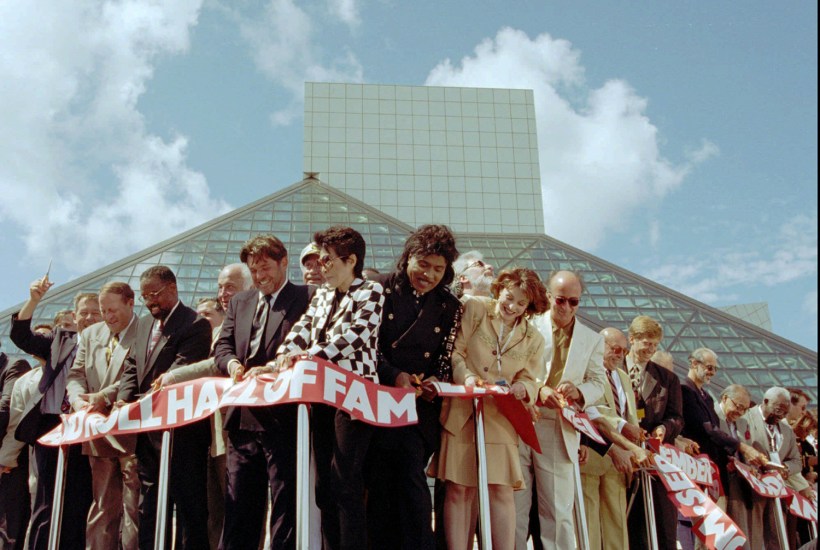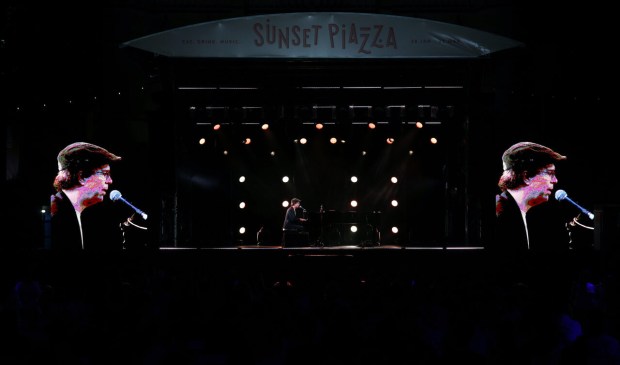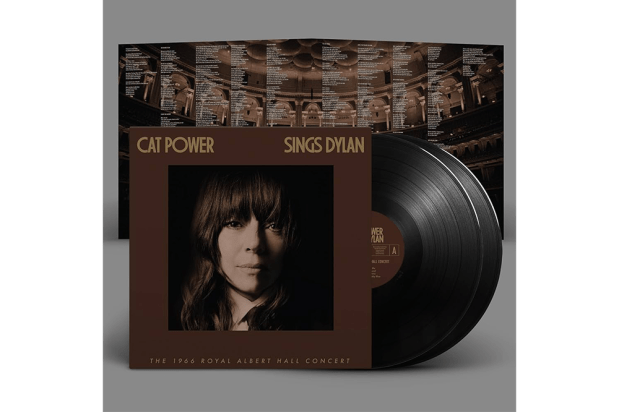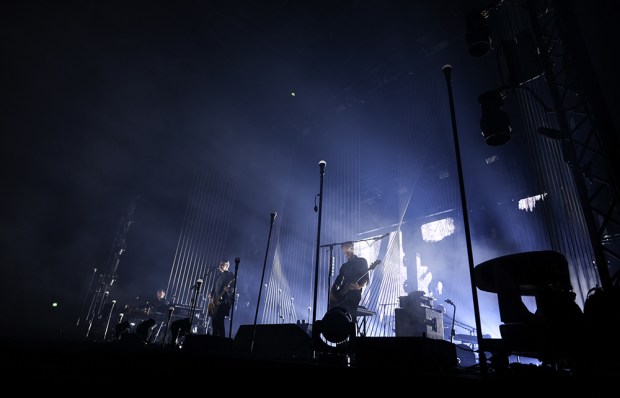There is footage on the internet of Robert Smith, lead singer in the Cure, being interviewed on the occasion of his band being inducted into the Rock and Roll Hall of Fame in 2019. At high pitch and tremendous volume, the host yells up a storm about the incredible honour being bestowed upon the group, while Smith claws at his face, grimaces, and rolls his eyes. ‘Are you as excited as I am?’ she shouts. ‘By the sounds of it, no,’ Smith mutters – speaking, surely, for all of us.
Of all the many reasons to dislike the RRHOF – some of which we’ll get to shortly; and yes, the acronym is one of them – it is the jarring mix of shrieking self-love and august earnestness which rankles most.
Founded in 1983 by Ahmet Ertegun of Atlantic Records, located in the blue collar heartlands of Cleveland, Ohio, the Hall of Fame is overseen by the grandees of US rock culture, among them Jann Wenner, founder of Rolling Stone magazine and Seymour Stein of Sire. Celebrating its 40th year of passing canonical judgment on the rox populi, it sets itself up as the ultimate arbiter of worthy music; a kind of faded denim ‘quality’ mark.
The ‘rock and roll’ part is a misnomer. It’s really the Post-War Popular Music Hall of Fame, covering everything from rap to soul to country, but Rock and Roll is essential to the branding and its self-image. Dolly Parton initially declined her 2022 nomination by pointing out that she is a country artist, not a rock and roll one. They put her in anyway. ‘We know best’, might be the RRHOF motto. In reality, the institution is legacy building at its most sluggish, light years behind the curve. It tells us nothing we don’t already know.
Each year, a handful of new inductees join the choir. Earlier this month, the RRHOF announced its nominees for its latest intake in May. It works like this: the committee picks around a dozen artists that have been deemed sufficiently worthy of being included in their hallowed halls. Each artist ‘must have released its first commercial recording at least 25 years prior to the year of nomination’. No upstarts, please.
Many of the 2023 crowd have been nominated in the past and failed to make the cut. They are nonetheless dredged up again For Your Consideration. This year, Kate Bush, Iron Maiden, Rage Against the Machine, Soundgarden, the Spinners and A Tribe Called Quest are all back in the dock, alongside newcomers such as the White Stripes, George Michael and Willie Nelson, who has reached this career landmark a few months shy of his 90th birthday.
Nominee ballots are sent to an international voting body of more than 1,000 artists, historians and members of the music industry; fans’ votes are also taken into account. They are asked to evaluate ‘an artist’s musical impact and influence on other artists, length and depth of career and body of work as well as innovation and superiority in style and technique’.
This last part is classic RRHOF self-aggrandisement. Kate Bush – one of the most unique and influential artists of the past 50 years – has just been nominated for the fourth time since 2018. She may well get the nod this year thanks to the recent resurgence of ‘Running Up That Hill’ via the Netflix drama Stranger Things. Having made no new music in the period since the first of her nominations and this one, her ‘body of work’ and ‘innovation and superiority’ have not altered one iota. It is simply that, thanks to a TV show, the gods of American commerce may now deem her entry requirements pass muster. Meanwhile, bundling Joy Division and New Order – two distinct bands that once happened to share three members – into one entry feels egregious and culturally tone-deaf. Little wonder British acts such as the Cure accept the honour with a smirk.
I don’t mind that it’s all very American: noisy, glitzy, a bit tawdry and tacky around the edges. I don’t really mind the corporate commodification of supposedly rebellious music; that ship sailed decades ago. All awards ultimately celebrate the industry, not the art. I can even enjoy the induction speeches. Long and heavy on inter-rock star bonhomie and hyperbole they may be, but they are often quite amusing.
I do object, however, to the idea of the headmasters of rock doing their sums and showing us their workings. Music isn’t an equation. How can anyone decide whether Willie Nelson is more worthy of inclusion than Warren Zevon? Or vice versa? And why aren’t they both in there already, dammit? A more honest process would be to pin photos of all the artists on a wall and throw darts at them. But really, why bother at all?
Got something to add? Join the discussion and comment below.
Get 10 issues for just $10
Subscribe to The Spectator Australia today for the next 10 magazine issues, plus full online access, for just $10.
You might disagree with half of it, but you’ll enjoy reading all of it. Try your first month for free, then just $2 a week for the remainder of your first year.














Comments
Don't miss out
Join the conversation with other Spectator Australia readers. Subscribe to leave a comment.
SUBSCRIBEAlready a subscriber? Log in